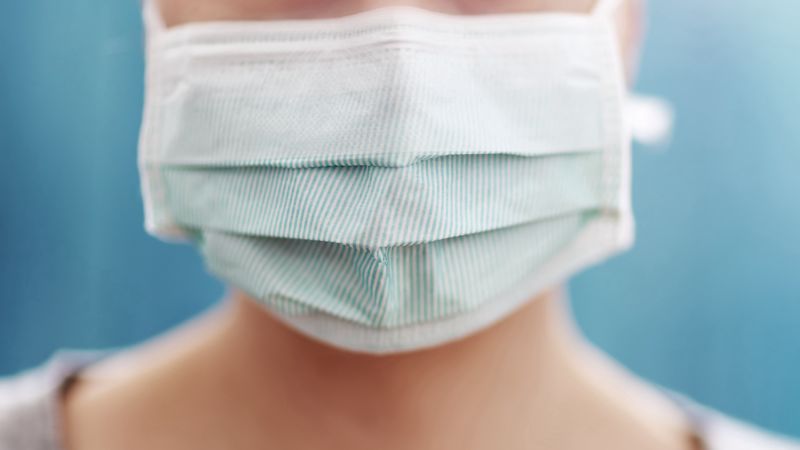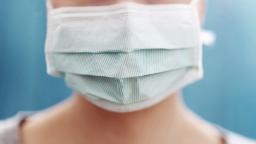

A version of this story appears in CNN’s What Matters newsletter. To get it in your inbox, sign up for free here.
CNN
—
Americans have moved on from Covid-19, but the disease has not gone away.
In China, the government has finally begun to ease draconian zero-Covid policies. Meanwhile, in the US, most Americans are resigned to the idea that Covid-19 will not be gone in their lifetime and many feel a return to masking is unpleasant.
The current rise in Covid-19 cases is one leg of a triple threat – a “tridemic,” a “tripledemic” or a “trifecta,” as some news organizations are calling it – along with a bad flu season and an RSV outbreak hitting mainly children.
RELATED: Get the full report on the three viruses from CNN’s Jacqueline Howard.
People are coughing and sick. Hospitals are stressed. Some local public health officials are warning that indoor masking could return.
Those warnings come just as the federal government moves in the opposite direction with vaccines. The House on Thursday passed a defense bill that rescinds a Covid vaccine requirement for members of the military.
In Los Angeles, where there is moderate but increasing Covid-19 spread, county public health director Barbara Ferrer said on December 1 that if case levels and strain on hospitals continue to rise, “then we would go ahead and follow the CDC guidance, which includes universal indoor masking.”
The official US government guidance for individuals has not changed since September. The US Centers for Disease Control and Prevention still recommends masking for everyone on public transportation (requirements have lapsed). But masking is only recommended in other public settings for all people in communities where there is a high level of transmission. People at higher risk of getting sick should wear masks when there is medium spread, such as in Los Angeles County.
CDC Director Rochelle Walensky told reporters Monday that about 5% of the population currently lives in a county with high spread. CDC’s county-level data suggests more than two-thirds of Americans live in an area with low transmission, but that cases are rising.
Walensky said the most important protection for people against the triple threat is to stay up to date on Covid-19 vaccines and boosters and to get an annual flu shot. Also, stay home when you’re sick, please.
Dr. Anthony Fauci, the outgoing director of the National Institute of Allergy and Infectious Diseases and President Joe Biden’s top medical adviser, also talked about the need to mask up during his final White House briefing in late November.
From his perspective, no one is talking about mask mandates since Americans have the tools to stay safe.
Pay attention to Fauci’s wording when he said that along with vaccines and testing for flu and Covid-19, “We have the option, under certain circumstances, with good judgment, to wear masks where appropriate in indoor congregate settings.”
He also said it’s important to view masks as one part of a strategy to keep yourself safe.
“You can count masking, vaccines, boosting, testing – all of that is part of the spectrum of protecting yourself and your family,” Fauci said.
He reiterated that sentiment in an exit interview with NBC News, where he suggested that people should mask where appropriate, but was careful to say it’s only a recommendation.
“I am not talking about mandating anything,” Fauci said. “I’m talking about just common sense of saying, ‘You know, I really don’t want to take the risk of myself getting infected, and even more so, spreading it to someone who is a vulnerable member of my family.’”
That personal evaluation is important, he said, because different people have different risk.
A reporter at the White House briefing argued the word “masking” has become pejorative in some places.
“No, it shouldn’t be,” Fauci said. “I know sometimes when you walk in and you have a mask and nobody has a mask, you kind of feel guilty. You shouldn’t feel guilty.”
Half of Americans said in an Axios-Ipsos survey released this week that they’ve completely returned to their pre-Covid routines.
More than two-thirds of Americans said they were wearing a mask not often or never outside the home. Just 14% said their employer required mask wearing.
In hindsight, mask requirements may have helped drive a growing skepticism of public officials. Nearly half, 45%, agreed in the Axios-Ipsos survey with the idea that public health officials lied to the public about the efficacy of masks and vaccines at preventing the virus’ spread.
But if Covid-19 cases were to increase, a little less than two-thirds of Americans, 65%, said they would wear a mask.
“Most Americans have had a practical attitude towards masking and mask requirements,” Chris Jackson, senior vice president of public affairs at Ipsos, told me in an email. “When people felt at risk of COVID they wore masks and were supportive of requirements. But now with most people feeling the risk to them is pretty low, few are wearing or support requirements to wear masks.”
The last time Ipsos asked about support for mask requirements was in July, when 45% supported local government requirements, down from more than two-thirds support in January 2022.
Masks do cut down on the spread of Covid-19, even in schools, according to a recent Harvard University study documented in The New York Times that looked at Covid-19 cases in two school districts that continued requiring masks after the rest of Boston area districts made them optional in the spring.
This will be the conundrum for public health officials if Covid-19 cases continue along with this “tripledemic” – how to get people to wear masks without trying to make them do it.
